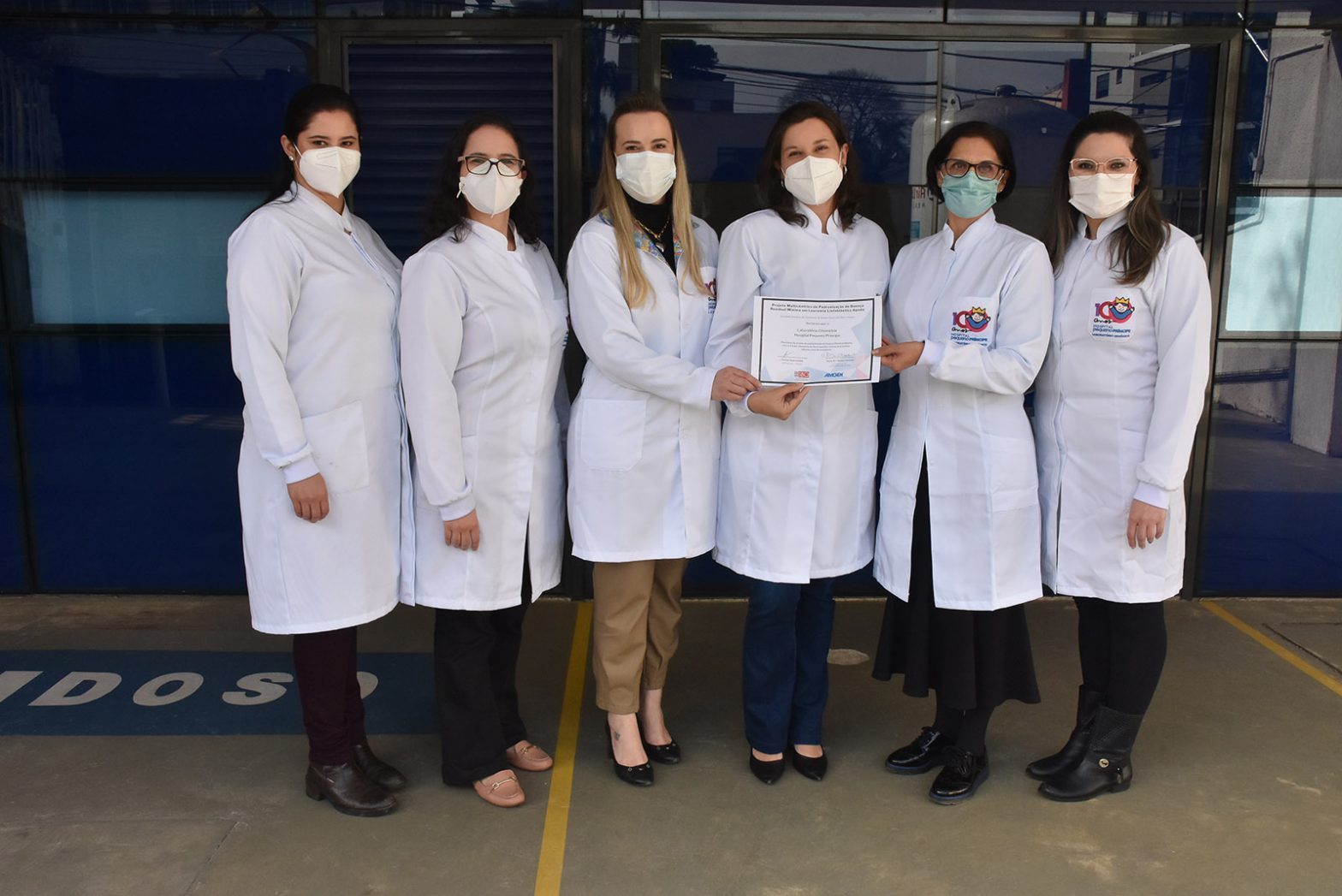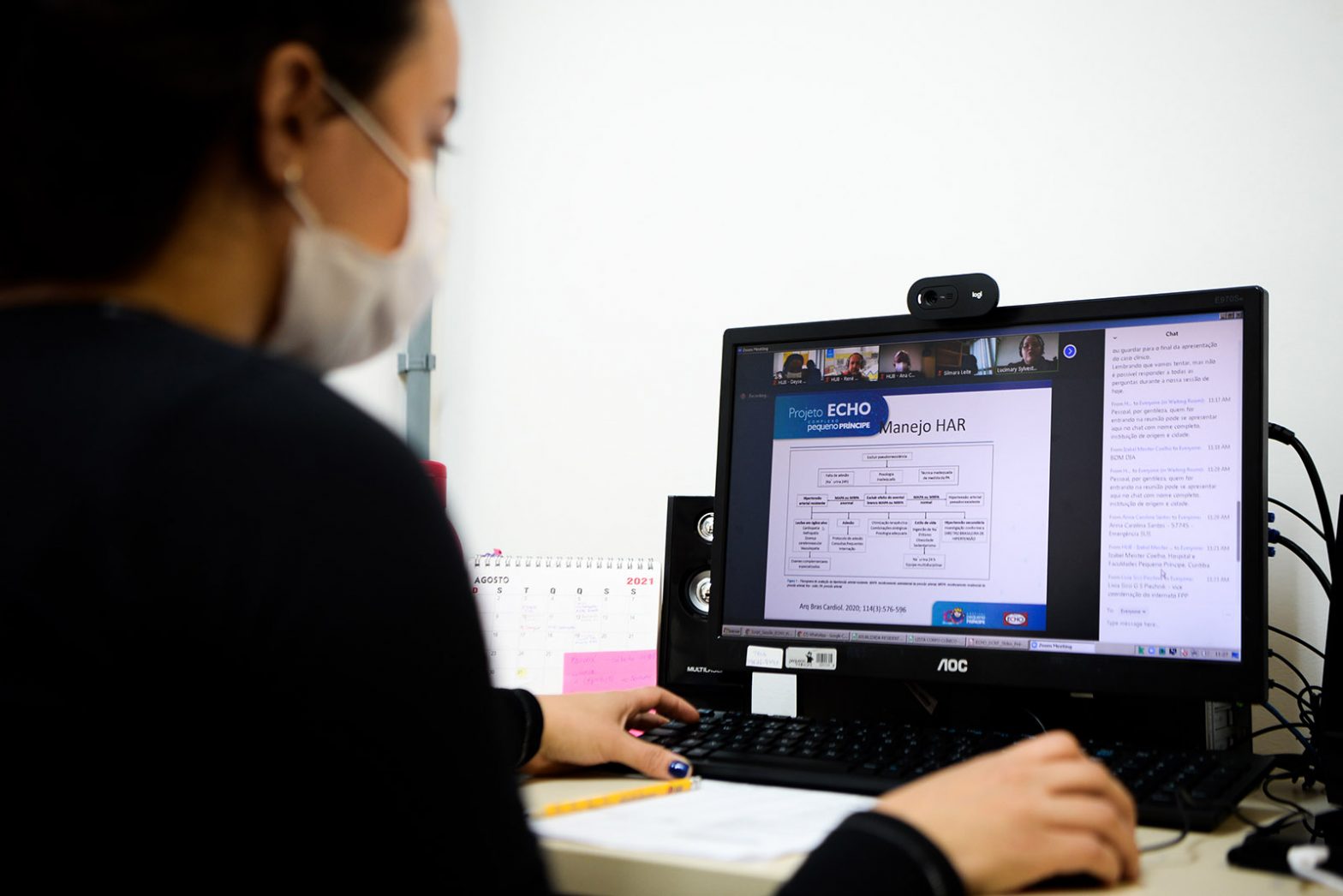Protocols adopted by the Hospital guarantee safety to all patients
Doctors warn about the importance of seeking specialized help to preserve the health of children and adolescents
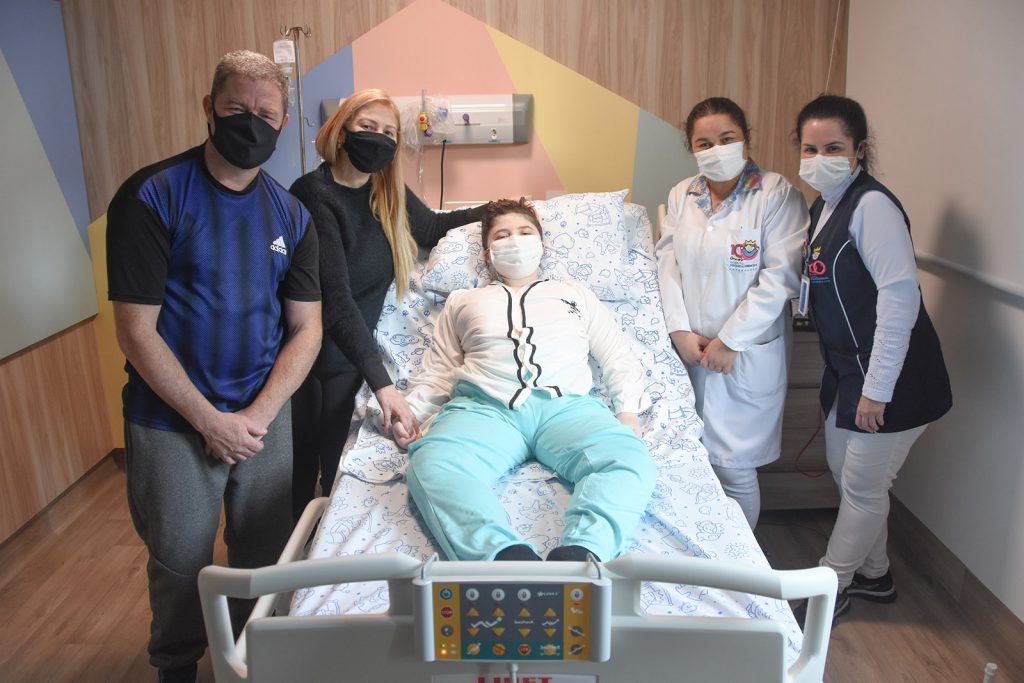
The teenager Charleston Roberto de Oliveira Mayer Junior, 17 years old, needed to go under a major and delicate surgery in the spine during the coronavirus pandemic, to correct a severe scoliosis. The boy has a rare disease called Duchenne muscular dystrophy, which affects only boys and is characterized by the lack of a protein in the muscles that helps keep the muscle cells healthy. As a result, this disease causes a progressive weakening of all the muscles in the body, affecting important developmental milestones such as sitting, standing, or walking. “Scoliosis is one of the complications of this disease, and, in my son’s case, the spine was so crooked that it was already putting pressure on his heart and lungs,” says his mother, Alessandra Mara Rodrigues.
The surgery, performed in July, was inevitable, but the family questioned whether that was the best time to do it, because of the coronavirus pandemic. “When the surgery was scheduled, we were at the high point of the pandemic. We thought about postponing, because we felt very afraid, especially since for his age there is still no vaccine available here in our city. But a conversation with the doctors calmed us down, because they explained to us about all the protocols adopted in order to separate the patients with COVID-19 from the others. After these conversations, we were reassured,” tells the mother.
And the family could see in practice what the doctors had informed in previous conversations. “Really the Hospital is being very careful with these protocols. Everyone uses alcohol at all times, and the patients are well separated. Not to mention that the staff is extremely attentive and caring. In the ICU, it seemed that there was only him as a patient, because he was so well taken care of. We are very grateful for all the care given to us”, says Alessandra.
“The apprehension of coming to the Pequeno Príncipe Hospital during the pandemic is understandable, but it is important that everyone knows that here is a safe place,” explains the technical assistant director of the institution, Victor Horácio de Souza Costa Junior. “We have created a specific hospitalization flow for patients with COVID-19, separating them from the others exactly to guarantee everyone’s safety,” he continues.
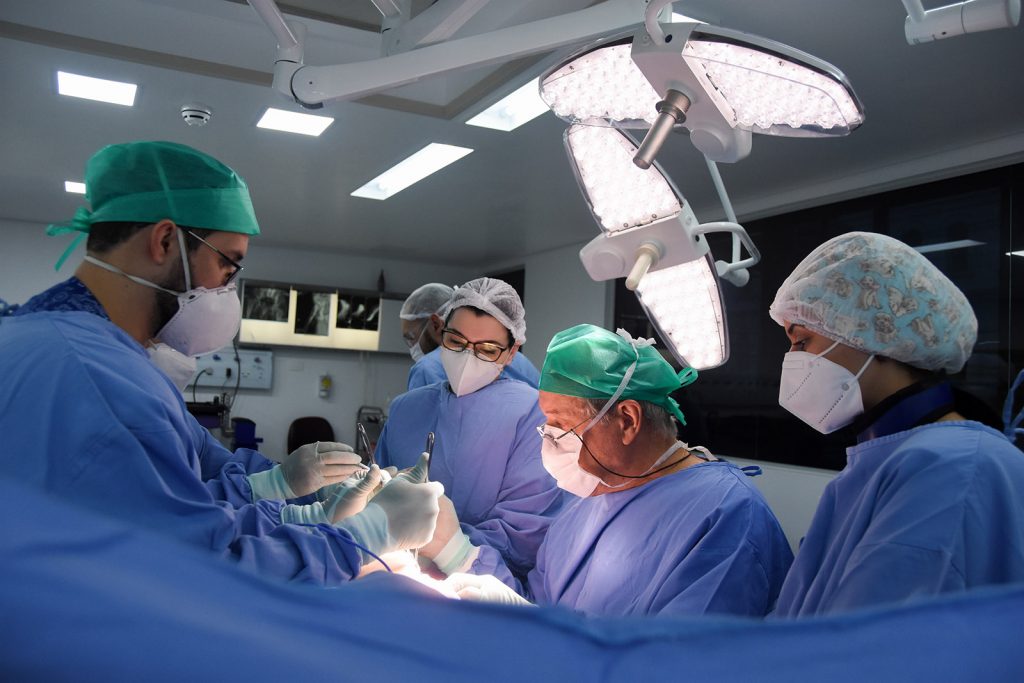
Moreover, the patients with confirmed or suspected COVID-19 are being admitted to an exclusive area, without contact with the others. A special protocol was also created in the Surgical Center, with one of its rooms devoted only for these patients.
Reduction of services
Even with all the care that Pequeno Príncipe has adopted, the number of patients seeking for the Emergency Room (ER), the outpatient clinics, as well as the number of surgeries, is well below the historical average registered by the institution, which shows the apprehension of the community. In 2020, for example, the total number of surgeries fell 40% compared to 2019. The number of outpatient visits had a 44% reduction, while inpatient admissions fell 43%.
In 2021, the monthly averages are still well below the historical number of assistances. In the ER, for example, before the pandemic, the Hospital used to serve about 10,700 appointments per month. This year, the average is 6,000 per month, again a drop of approximately 40%.
“Whether in cases of COVID-19 or any other disease, early diagnosis makes all the difference for the patient’s recovery. It makes us better able to fight for the child’s health, with a tendency to a good evolution. But if the families don’t look for the Hospital, we have a worsening of the conditions,” says Costa Junior. Hence the importance of trusting the protocols established by the institution and seeking specialized help whenever the child or adolescent is in need.
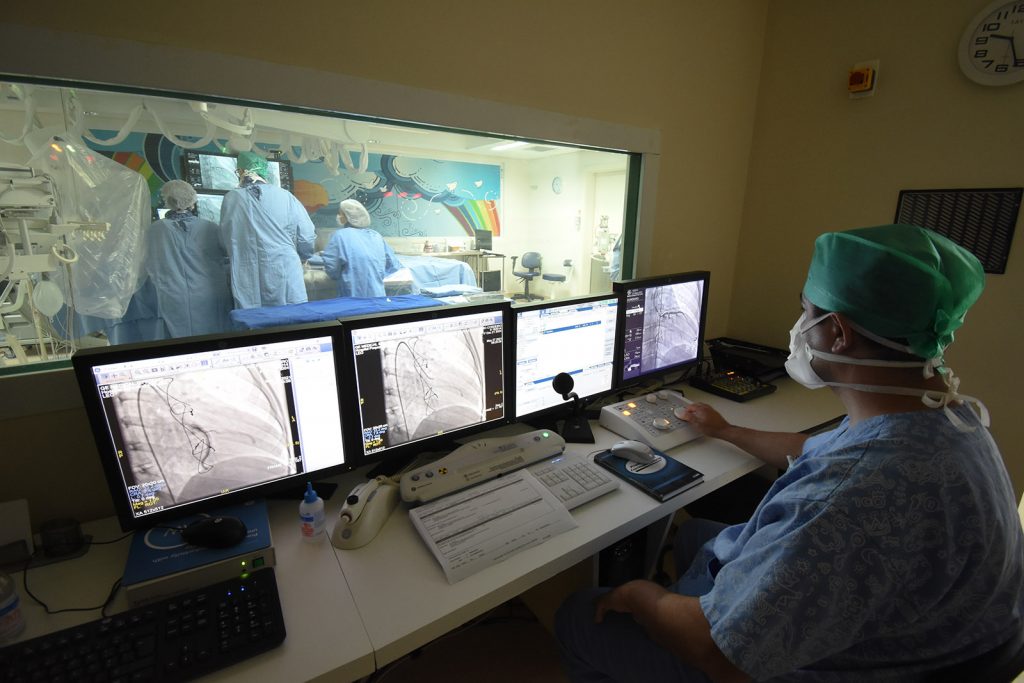
Financial impact
The reduction in the number of patients attending the emergency rooms, the outpatient clinics and the surgeries has yet another impact on Pequeno Príncipe: the financial one. In 2020, for example, the revenue from health insurance plans had a reduction of approximately 20%, while the total revenue decreased 6%.
“This is one more reason why the Pequeno Príncipe Hospital needs the support of the community. Together, we are stronger and we will be able to continue transforming and saving lives,” emphasizes the Hospital’s executive-director, Ety Cristina Forte Carneiro.
To support the institution, click here.
Check in the video below how the Hospital is prepared to serve everyone safely.
More
Genomic Laboratory is certified for excellence in leukemia tests
The unit is among the first ten in Brazil to receive the certification, which is based on strict international protocols
Pequeno Príncipe Hospital becomes a hub for the Project ECHO
Created in the United States, the initiative promotes the exchange of information among professionals, democratizing knowledge


